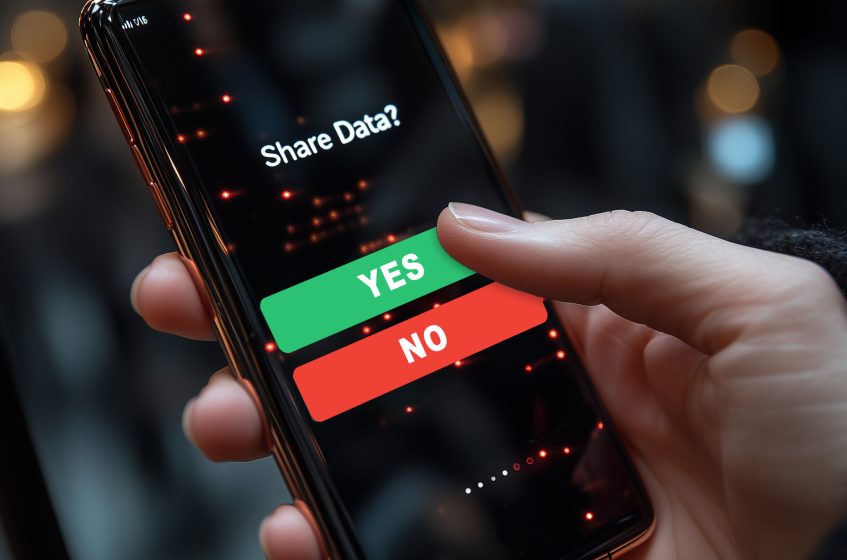
Can Voluntary Data Sharing Protect Consumers?
In this data-driven age, companies across the economy are actively seeking ways to collect and use consumer data. For example, the car-hailing app Uber has been accused of monitoring their users’ mobile phone battery and then charging them more if their battery is low (see Note 1). The travel website Orbitz has also faced questions on whether they display more costly hotels to Apple Mac users (see Note 2). If data is misused, this will only fuel consumer concerns about how their information is collected and force lawmakers to seek more prudent ways to monitor the data collection practices of companies.
In the past decade, legislatures worldwide have been taking action to limit the collection and use of data. Whether it is the European Union’s “General Data Protection Regulation”, the United States’ “California Consumer Privacy Act”, China’s “Personal Information Protection Law” and Australia’s “Online Privacy Bill”, they all reflect an increasingly stringent set of international regulations on data collection activities. Still, governments often find themselves in a Catch-22 situation: If the collection of personal data is not regulated, firms are bound to misuse data which will harm consumers’ rights. On the flip side, a complete ban on companies collecting personal data will prevent consumers from enjoying the conveniences technology brings and stifle the development of the digital economy. That is why we often see a compromised option: Let consumers take complete ownership of their data and allow them to decide whether to share their information with businesses. This strategy appears impeccable – If consumers see data sharing as a good thing, they can choose to voluntarily share their data and enjoy the convenience of data technology. However, if data sharing is despised, consumers may flat-out refuse to release their information. Either way, consumers should benefit. Yet, is this really the case?
Not exactly. First of all, consumers often find it difficult to understand what data businesses have gathered and how they have used that information. Therefore, it is hard for consumers to decide if they should share their data. Even if enterprises have to explain their data collection and usage to consumers through a privacy policy, the provisions are often lengthy and obscure. An analysis in The New York Times highlighted that a reporter had to spend around 18 minutes to read through Facebook’s privacy policy. As for the nearly 150 popular websites and apps scrutinised, most of their privacy policies would require someone with a legal background or above a tertiary-level education to fully understand (see Note 3). It is therefore easy to imagine, the majority of consumers will not have carefully read the companies’ privacy policies but agreed to their data collection.
Another problem is whether to let consumers make their own minds about data sharing. This in itself has already presented companies with enough information to split consumers into two groups – those who are “willing to share data” versus those “unwilling to share data” – and treat them differently. Take Orbitz as an example: If Orbitz provides Microsoft Windows users with cheaper hotel prices and suggests more expensive hotel rooms to Mac users, Windows users may willingly share their data to get better deals. If a user is reluctant to share his or her data, we can safely assume he or she is a Mac user and still offer more expensive room rates. This illustrates that users will be exploited regardless. In fact, the authors’ joint research has found that voluntary data sharing could even push product prices higher and further harm consumers’ rights.
These research findings drive us to rethink how to regulate the collection and usage of data. A blanket ban on data collection is unrealistic. Instead, we should target different types of data and scenarios to formulate more refined regulations. Only when we are absolutely certain that data autonomy is beneficial to consumers should we pass that power onto them. In many cases, it may simply be better to decide for the consumer.
This article is based on Professor Li Xi, Professor Yang Zhilin and Dr. Li Bingqing’s joint research “The Dark Side of Voluntary Data Sharing” which will be published shortly in the MIS Quarterly Journal.
Note 1: https://www.vice.com/en/article/uber-surge-pricing-phone-battery/
Note 2: https://www.bbc.com/news/technology-18595347
Note 3: https://www.nytimes.com/interactive/2019/06/12/opinion/facebook-google-privacy-policies.html
Professor Li Xi
Professor in Marketing
Director, Asia Case Research Centre
Associate Director, Institute of Digital Economy and Innovation
This article was also published on August 22, 2024 on the Financial Times’ Chinese website







